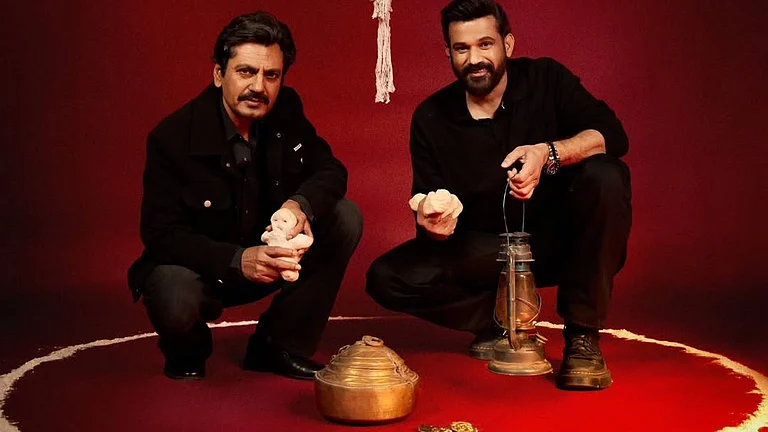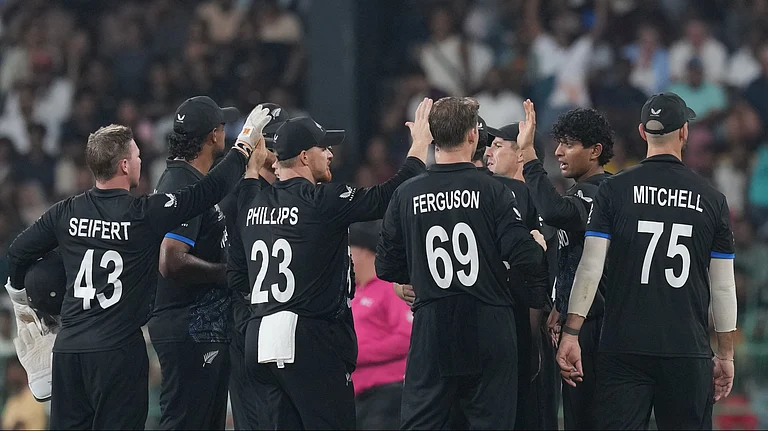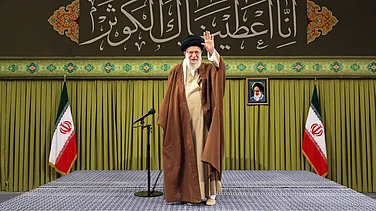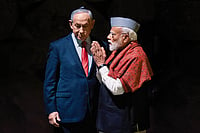In the ongoing civil war in Myanmar, triggered by the army’s refusal to hand over power to a democratically elected government, the powerful military junta has taken a massive hit in the latest onslaught by the opposition forces. So much so that the army has admitted to heavy losses and is warning people to unite against the disintegration of the country. Few except hardcore supporters of the regime will pay heed to the junta’s call.
For the first time in decades the powerful military that has ruled Myanmar since independence, except for brief periods of democracy, is on the back foot. The army’s power and legitimacy are derived from its ability to keep the country together. However the coup of February 2021, when the army once again stopped the National League for Democracy (NLD) from forming a government, the people refused to take more of military interference.
Long used to cracking the whip and packing political leaders and activists in jail, the military was taken by surprise at the resistance. The people of Myanmar were in no mood to have another legitimate election snatched from them. Common citizens showed extraordinary courage in standing up to the generals. All political leaders, including Aung San Suu Kyi, were put behind bars and cases piled against them. Encouraged by the people’s response, the opposition under the National League for Democracy formed a shadow government in exile( National Unity Government) called for a country-wide uprising against the military and formed an armed militia to fight the regime.
The NUG reached out to the various ethnic militant groups that are scattered across the far-flung frontiers of Myanmar to help train the militia and join forces against the military junta.
The unprecedented coming together of the majority Burman or Bamar community that make up the opposition parties with various ethnic rebel groups who have fought against the dominance of the Myanmar military since independence is surely but slowly turning the tide against the generals.
The Buddhist majority had in the past steadfastly backed the military leadership against the indigenous tribes living in the far-flung mountainous areas of Myanmar. The army has never been in complete control of the outlaying fringes of the country.
The loose alliance of the ousted National Unity government with the Shans, Karens, Mons, Kachins and Chins is now a formidable force that can finally change the narrative in Myanmar.
International Reaction
The dramatic developments are being closely watched by Asia’s two major powers India and China. Both neighbours have enormous strategic stakes in Myanmar and are backing the junta.
New Delhi is concerned that the fighting does not spill over or lead to refugee influx into its sensitive northeastern states that adjoin Myanmar. Earlier this month on November 16, 75 soldiers from the Myanmar army, surrendered to the Mizoram police.
They had crossed over after a gunfight with Chin insurgents from the Chin National Defence Force. The soldiers were later repatriated to the Myanmar army. Nearly 5000 refugees had sought refuge in Mizoram since opposition Chin rebels overran several army camps in heavy fighting that broke out last month.
After the latest military coup in 2021, the international community condemned the murder of democracy in Myanmar. US President Joe Biden who had just taken over in Washington and promised to promote democracy and human rights during around the world made several strong statements on the need to respect the mandate. European leaders did the same and called for the immediate restoration of the elected government.
None of this made a dent in the military junta. They had gone down this route before. They knew it was only a matter of time before the world forgot about this isolated country and beyond slapping sanctions on the country, no more would be said. Expectedly Myanmar did not remain the focus of the international community for long. First Ukraine and now Gaza a priority for the US and European leaders. Neither the US nor its allies have major stakes in this isolated part of the world and have left it to ASEAN and the regional powers to persuade the military leadership to start a dialogue with the political opposition.
In the past India had backed the pro-democracy movement in Myanmar. After Aung San Suu Kyi was placed under house arrest in 1989, New Delhi like many other nations refused to engage with the military rulers. During the crackdown of the pro-democracy activists, thousands of party workers took refuge in India.
China gained from India’s decision to withdraw from Myanmar filling the vacuum and spreading its wings across the country. In 1991 when Narasimha Rao came to power, the concern about Chinese presence so close to India’s sensitive northeast resulted in a policy correction. New Delhi reached out to the military. Keeping in mind its security concerns, India decided to ditch its concerns about democracy and human rights and opt for pragmatic self-interest. That policy helped when Indian forces occasionally crossed the international border into Myanmar and raided the camps of the northeastern militants. Militants often took shelter in the thick jungles of Myanmar adjoining the northeast.
There was much criticism of Narasimha Rao’s decision to engage with the junta, especially as Aung San Suu Kyi had lived and studied in New Delhi when her mother served as the Burmese envoy to India. Her family was close to the Nehru-Gandhi going back to the era of Jawaharlal Nehru and her late father Aung San who fought for independence from the British and is often regarded as the father of modern Myanmar.
Aung San Suu Kyi, who had won the 1991 Nobel Peace Prize for her valiant and non-violent fight for democracy, was hurt by India’s attitude. After she was released from house arrest, she went to Washington, London, Paris and several other capitals to personally thank the governments for taking up her cause. She did not come to India, till many months much later to receive the Rajiv Gandhi award that had been given to her while she was under arrest. While accepting the prize in New Delhi she publicly berated India and said more was expected from the world’s largest democracy. Indian officials however said that New Delhi did not have the luxury of supporting democracy and human rights from afar. It shares a 1,643-kilometer open border with Myanmar that impinges on its security and strategic interests.
"We rhetorically talk of democracy in Myanmar but in actual fact, we have been engaging with the army. In fact, India is following the ASEAN line on Myanmar, which so far has achieved very little. The cautious approach of Asian countries is not helping,’’ says SD Muni, an analyst and an expert on India’s neighbourhood.
ASEAN had achieved very little by way of success in bridging the gap between the opposition and the military or even initiating a dialogue. None of the East Asian nations, that make up the ASEAN group want to irritate China. All of them have thriving economic ties with the Chinese mainland and know that China backs the military junta.
But China itself is playing both sides. Fed up with Myanmar’s refusal to crack down on what is referred to as scam centres that have proliferated along the China-Myanmar border in the northern Shan state. Criminal syndicates run by warlords, kidnap Chinese citizens and force them to lure their compatriots, as well as the Chinese diaspora to invest huge sums in fraudulent schemes. These scam centres that have sprouted close to Myanmar’s border with China, has according to a UN report, nearly 120,000 people. Many of the warlords owe allegiance to the military and the army despite constant requests from China not to move against the warlords. Several Chinese nationals were killed in the border areas. China then began engaging with the militants and is said to have helped the Shan forces. Many of these scam centres have been destroyed.
It is of course too early to write of the generals. But if the current trend in the civil war continues, the military will be forced to reconsider its strategy. India should be wary of putting all its eggs in the junta basket and keep strong ties with the opposition NLD intact for the future when the generals will have to allow the democratic forces to function.



























